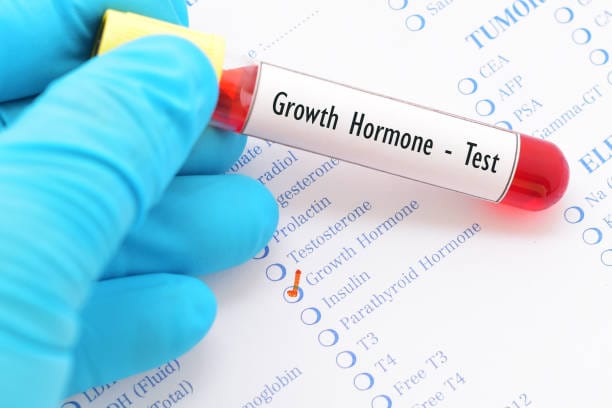- Aeviva
- Posts
- Does Skipping Meals Stop the Clock? ⏳ Science on Fasting and Anti-Aging
Does Skipping Meals Stop the Clock? ⏳ Science on Fasting and Anti-Aging
How fasting triggers powerful anti-aging processes in your body—from cellular cleanup to youthful hormones.

Imagine a way to turn back your body’s biological clock—no expensive creams, surgeries, or miracle pills required. Fasting, an ancient practice now backed by cutting-edge research, might be the key. Studies reveal that fasting doesn’t just help you lose weight; it activates powerful anti-aging mechanisms at the cellular level. From promoting cell repair to boosting youth-preserving molecules, fasting could be your body’s ultimate secret weapon against aging. So, what happens when you fast, and how can you use it to slow down time? Let’s find out

Participate in running research with RunDot and get two free months of training.
The RunDot Project is an annual research initiative that offers 2 free months of run training to qualified participants.
What Is Fasting?
Fasting is the voluntary abstention from food, ranging from hours to days. It’s a natural state your body evolved to handle during periods of scarcity, and it triggers unique processes that aren’t activated when you’re constantly eating.
Types of Fasting Linked to Anti-Aging Benefits:
Intermittent Fasting (16:8): Eating within an 8-hour window and fasting for 16 hours.
Prolonged Fasting: Abstaining from food for 24-72 hours (with medical supervision).
Fasting-Mimicking Diet: Consuming very low calories (~500-800) for 5 days to mimic fasting benefits without full restriction.
💡 Fun Fact: Fasting triggers processes that prioritize repair and longevity, rather than growth and storage, which are linked to aging.

What Happens During Fasting?
When you fast, your body activates anti-aging processes that protect and rejuvenate your cells. Here’s what happens:
Cellular Cleanup (Autophagy):
Around 16-24 hours of fasting, your cells enter a process called autophagy, where they identify and destroy damaged components. Think of it as a deep-clean for your cells, recycling “junk” that can lead to aging and diseases like Alzheimer’s. 🧹Boost in Youth Molecules:
Human Growth Hormone (HGH): Fasting increases HGH production by up to 500%, helping repair tissues, maintain muscle mass, and slow down physical decline.
Nicotinamide Adenine Dinucleotide (NAD+): Essential for repairing DNA and maintaining cellular energy, NAD+ levels naturally decline with age. Fasting restores NAD+ production, slowing cellular aging.
Mitochondrial Efficiency:
Fasting enhances the function of your mitochondria—the powerhouses of your cells—keeping them efficient and reducing oxidative stress, a major driver of aging.Reduced Inflammation:
Chronic inflammation accelerates aging. Fasting reduces inflammatory markers, promoting healthier skin, joints, and overall vitality.
💡 Fact: A study in Nature Communications found that intermittent fasting can extend lifespan by 13-15% in mammals, with similar effects being explored in humans.
Why Fasting Is Linked to Anti-Aging
Aging isn’t just about wrinkles—it’s a biological process driven by the gradual breakdown of cells, tissues, and essential hormones. Fasting offers a unique way to counteract this by triggering human growth hormone (HGH) production, a key factor in slowing aging. During fasting, HGH levels can increase by up to 500%, aiding in tissue repair, muscle preservation, and metabolic regulation.
This surge in HGH works alongside autophagy, the body’s natural process of clearing damaged cells, to delay cellular aging. Additionally, fasting boosts NAD+ levels, a molecule critical for DNA repair and energy production, further protecting cells from oxidative stress and age-related decline. These combined effects help preserve skin elasticity, muscle strength, and overall vitality—making fasting a powerful anti-aging tool.

The Risks of Fasting: What You Need to Know
While fasting has many benefits, it’s not for everyone. Certain types of fasting can be dangerous, especially if done incorrectly:
Overdoing It: Prolonged fasting without medical supervision can lead to nutrient deficiencies, muscle loss, and low energy.
Medical Conditions: Those with diabetes, eating disorders, or heart issues should avoid fasting unless advised by a doctor.
Electrolyte Imbalance: Long fasts can disrupt your body’s electrolyte levels, causing dizziness, fatigue, and even heart arrhythmias.
💡 Pro Tip: Start with shorter fasting windows (e.g., 12-16 hours) and consult a healthcare professional if you’re considering prolonged fasting.
The #1 App That Helps You Fall Asleep In Minutes
BetterSleep, the 5 star app that focuses on helping users sleep better and feel better daily.
Build and layer a unique personalized mix from over 300 unique sounds such as: green noise, ocean waves, heavy rain, arctic storms or even background bustle in a city cafe! Use sound science to send yourself to sleep and improve your restlessness.
By building your perfect dreamy soundscape and watch your sleep and your mornings improve in just 7 days!
Quiz: Are You Ready to Fast for Longevity?

Test your knowledge! Answer True or False:
Fasting triggers autophagy, a process where your body repairs damaged cells.
Prolonged fasting is the safest and most effective way to slow aging.
Fasting boosts NAD+, a molecule linked to DNA repair and anti-aging.
You can break your fast with any type of food—it doesn’t matter.
Intermittent fasting (16:8) is one of the most popular anti-aging fasting methods.
💡 Answers: 1) True, 2) False, 3) True, 4) False, 5) True
Fasting isn’t just a tool for weight loss—it’s a scientifically supported method to slow the aging process at the cellular level. By activating autophagy, boosting key hormones like HGH, and reducing inflammation, fasting could help you stay youthful, inside and out. Whether you try intermittent fasting or experiment with fasting-mimicking diets, remember: consistency and balance are key. Give your body the break it deserves—it might just thank you with a longer, healthier life. 🕰️✨
Take-Home Message
During fasting, human growth hormone (HGH) production increases by up to 500%, aiding tissue repair, muscle preservation, and metabolic health. 💪
Fasting triggers autophagy, a process where your body removes damaged cells, reducing aging-related damage. 🧹
It also boosts NAD+ levels, essential for DNA repair and maintaining cellular energy, which naturally decline with age. ⚡
Fasting is not a one-size-fits-all solution; choose a method like intermittent fasting (16:8) or fasting-mimicking diets for safe, sustainable results.
Avoid prolonged fasting without medical supervision, especially if you have existing health conditions. 🚫
The combined effects of fasting—cell repair, hormonal balance, and reduced inflammation—make it one of the most promising anti-aging tools.


Reply